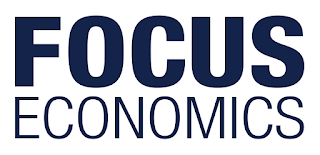October 2018: Greece is now in a stable status.
The economy lost pace in the second quarter as domestic demand waned. Sustained austerity measures and sky-high unemployment dented private consumption growth, despite signs of a moderate improvement in the labor market. In addition, public spending dipped in the quarter as the government remained committed to its fiscal consolidation plans. On a brighter note, booming inbound tourism propped up the external sector in the quarter. Available economic indicators appear more upbeat for the third quarter: economic sentiment shot up to an over four-year high in August, and a solid outturn by the manufacturing sector buoyed otherwise lackluster industrial output growth in July. On the heels of exiting its third government bailout, on 28 August, Prime Minister Alexis Tsipras reshuffled his cabinet. The reshuffle involved few key posts and was likely aimed at shoring up government support before next year’s election.
Hard-earned momentum should carry into next year as the economy finally emerges from eight years of creditor bailouts. Improving labor market dynamics and a pick-up in investment activity should drive the recovery. However, doubts remain over long-term debt sustainability and the government’s willingness to maintain fiscal discipline. FocusEconomics panelists see GDP expanding 2.0% in 2018 and 2.0% in 2019, unchanged from last month’s projection. Harmonized inflation ticked up to 0.9% in August (July: 0.9%). Our panel sees harmonized inflation averaging 0.8% in 2018 and 1.1% in 2019.
REAL SECTOR | Recovery loses traction in Q2
According to provisional data released by the Hellenic Statistical Authority (ELSTAT), the Greek economy lost some momentum in the second quarter, after expanding at the fastest pace in over 10 years at the start of the year. GDP expanded 1.8% annually in Q2, down from 2.6% in Q1. The print matched FocusEconomics’ expectations. While the economy has come a long way since the height of the crisis, growth is still moderate and gradual considering the depth of the country’s recession. The slowdown was driven by a deterioration in the domestic economy in the second quarter. Private consumption growth slowed from Q1’s 1.3% to 0.4%. While the labor market has tightened in recent quarters, unemployment is still elevated and austerity measures have dented households’ spending power. Government consumption plunged 2.0% in the quarter, the biggest drop in over a year, as the government pursues fiscal consolidation. In addition, fixed investment fell 5.3% in Q2, a softer drop than Q1’s 9.9% decrease which was largely due to strong base effects.
Unemployment rate dips in June According to data released by the Hellenic Statistical Authority (EL.STAT), the number of unemployed workers fell by 12,624 in June compared with May, while those in employment rose by 17,656 in the same period. In turn, the seasonally-adjusted unemployment rate moderated to 19.1% from a revised 19.3% in the previous month (previously reported: 19.5%). Moreover, June’s unemployment rate was 2.2 percentage points lower compared to the same month of last year (June 2017: 21.3%). Meanwhile, youth unemployment—categorized by individuals between the ages of 15-24—inched down slightly to 39.1% in June, although still the highest in the Eurozone by far. FocusEconomics Consensus Forecast panelists expect the unemployment rate to average 19.8% in 2018, which is down 0.1 percentage points from last month’s forecast. For 2019, the panel expects the unemployment rate to average 18.6%, unchanged from last month’s projection.
According to provisional data released by the Hellenic Statistical Authority (ELSTAT), the Greek economy lost some momentum in the second quarter, after expanding at the fastest pace in over 10 years at the start of the year. GDP expanded 1.8% annually in Q2, down from 2.6% in Q1. The print matched FocusEconomics’ expectations. While the economy has come a long way since the height of the crisis, growth is still moderate and gradual considering the depth of the country’s recession. The slowdown was driven by a deterioration in the domestic economy in the second quarter. Private consumption growth slowed from Q1’s 1.3% to 0.4%. While the labor market has tightened in recent quarters, unemployment is still elevated and austerity measures have dented households’ spending power. Government consumption plunged 2.0% in the quarter, the biggest drop in over a year, as the government pursues fiscal consolidation. In addition, fixed investment fell 5.3% in Q2, a softer drop than Q1’s 9.9% decrease which was largely due to strong base effects.
Unemployment rate dips in June According to data released by the Hellenic Statistical Authority (EL.STAT), the number of unemployed workers fell by 12,624 in June compared with May, while those in employment rose by 17,656 in the same period. In turn, the seasonally-adjusted unemployment rate moderated to 19.1% from a revised 19.3% in the previous month (previously reported: 19.5%). Moreover, June’s unemployment rate was 2.2 percentage points lower compared to the same month of last year (June 2017: 21.3%). Meanwhile, youth unemployment—categorized by individuals between the ages of 15-24—inched down slightly to 39.1% in June, although still the highest in the Eurozone by far. FocusEconomics Consensus Forecast panelists expect the unemployment rate to average 19.8% in 2018, which is down 0.1 percentage points from last month’s forecast. For 2019, the panel expects the unemployment rate to average 18.6%, unchanged from last month’s projection.



